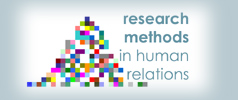Research Concepts
Research Objectives
Your research objectives are the specific things that you hope to learn from your study. Your research objectives will help frame your population, your variables, your data collection, your measurements, and many other features of your study.
Finding your research objectives is different from finding your research topic. For example, your topic might be "runaway youth" while your "objective" relates to what you hope to learn about runaway youth.
Your research objectives should be
- Clear
- Neither too broad nor too narrow
- Researchable
- Evocative
- Grounded
A clear objective is specific, short, easy to understand, and helps to clarify other steps in the research process such as defining the population, variables or measures. An objective such as "learn more about runaway youth" is unclear since it doesn't tell you what you hope to learn. An objective such as "what factors cause youth to become runaways?" is better since it is more specific.
Avoid research objectives that are so broad they are beyond your budget or time constraints. Similarly, a topic that is too narrow might be so simple as to be uninteresting or so restricted that you can't gather the necessary data. Like the porridge in Goldilocks and the Three Bears, the scope of your objectives should be "just right" for your budget and other constraints.
There are many ways you could choose a research objective that is not researchable. Learning about why some gay people choose to remain closeted, for example, requires studying a population that is defensively hiding: finding repsresentative subjects may expose them to risks and thus be unethical. In any case, it may be impossble to find a representative sample.
The best objectives are often formulated as questions. Questions often relate to our underlying beliefs about the social or pscyhological mechanisms we are studying -- in particular questions are often informed by a theory about the phenomenon we studying. Questions about whether or not our theory accurately reflects reality often lead to the best research objectives. A researchable objective will help you decide
- what population to study;
- what variables to measure;
- what data to collect;
- how to analyze our data;
- whether or not our theories are supported by data.
A good research objective will be evocative -- it will be memorable, catch the readers attention, be timely, and will challenge the reader to ask new questions or learn new things.
Finally, a good research objective will be grounded through connections with prior research, connections with a specific time and place, and connections to to a theoretical fundation.
